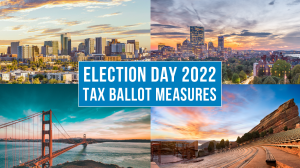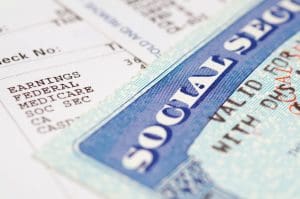The economic crisis caused by the coronavirus pandemic poses a triple challenge for tax policy in the United States. Lawmakers are tasked with crafting a policy response that will accelerate the economic recovery, reduce the mounting deficit, and protect the most vulnerable.
To assist lawmakers in navigating the challenge, and to help the American public understand the tax changes being proposed, the Tax Foundation’s Center for Federal Tax Policy modeled how 70 potential changes to the tax code would affect the U.S. economy, distribution of the tax burden, and federal revenue.
In tax policy there is an ever-present trade-off among how much revenue a tax will raise, who bears the burden of a tax, and what impact a tax will have on economic growth. Armed with the information in our new book, Options for Reforming America’s Tax Code 2.0, policymakers can debate the relative merits and trade-offs of each option to improve the tax code in a post-pandemic world.

Maryland Court Strikes a Blow to Digital Advertising Taxes
The first-in-the-nation digital advertising tax was recently struck down by a Maryland circuit court on three separate grounds. Other states might want to avoid getting themselves into this situation in the first place.
5 min read
Spain’s Race to the Bottom in the International Tax Competitiveness Index
Since 2020, Spain has dropped from 26th to 34th on the International Tax Competitiveness due to multiple tax hikes, new taxes, and weak performances in all five index components.
7 min read
A Flat Tax in Wisconsin Can Deliver Tax Relief for Everyone
With increases to the standard deduction, a flat tax could provide a net tax cut to taxpayers of all income levels, providing both short-term and long-term relief to taxpayers across the income spectrum. It would also simplify the tax code in ways that encourage greater investment and economic growth, particularly by ensuring that the marginal rate on small business investment is competitive with peer states.
4 min read
Cannabis Taxes Back on the Ballot in 2022
While changes to federal cannabis law are slow, changes at the state level are accelerating. Recreational cannabis is on the ballot in five states this November—Arkansas, Maryland, Missouri, North Dakota, and South Dakota—giving voters the ability to join 19 states that have already legalized recreational marijuana.
5 min read
Colombia Is in Urgent Need of Pro-Growth Comprehensive Tax Reform
Colombia should consider shifting its planned tax reforms from harmful corporate and individual taxes to less harmful consumption taxes.
5 min read
State Tax Ballot Measures to Watch on Election Day 2022
From income tax changes to cannabis legalization and taxation, here’s what voters decided on Election Day.
6 min read
Should We Tax University Endowments?
Taxing university endowments has gained popularity recently, partly in response to the Biden administration’s forgiveness of student loan debt. Some view it as a means of holding universities accountable for the product they’re selling. Others view it as a tool to tamp down tuition rates or punish ideological opponents. But do these arguments hold water and is an endowment tax sound policy?
7 min read
Coloradans Could Lower Their Income Taxes This Fall
When Coloradans go to the polls this November, they will be given the opportunity to permanently lower their income taxes—or to increase those tax burdens.
4 min read
California Can’t Give Up Tax Increases
California is no stranger to high taxes, and the state has enough going for it that its economy can withstand higher tax burdens than would be viable in other parts of the country. But there’s always a tipping point.
6 min read
Tax Treatment of Social Security Benefits Remains a Confusing Matter for Taxpayers
The Social Security Administration (SSA) announced the cost-of-living adjustment for Social Security payments based on inflation over the previous year. This has brought renewed attention to how the tax code treats Social Security benefits, which can be a confusing subject for taxpayers.
4 min read